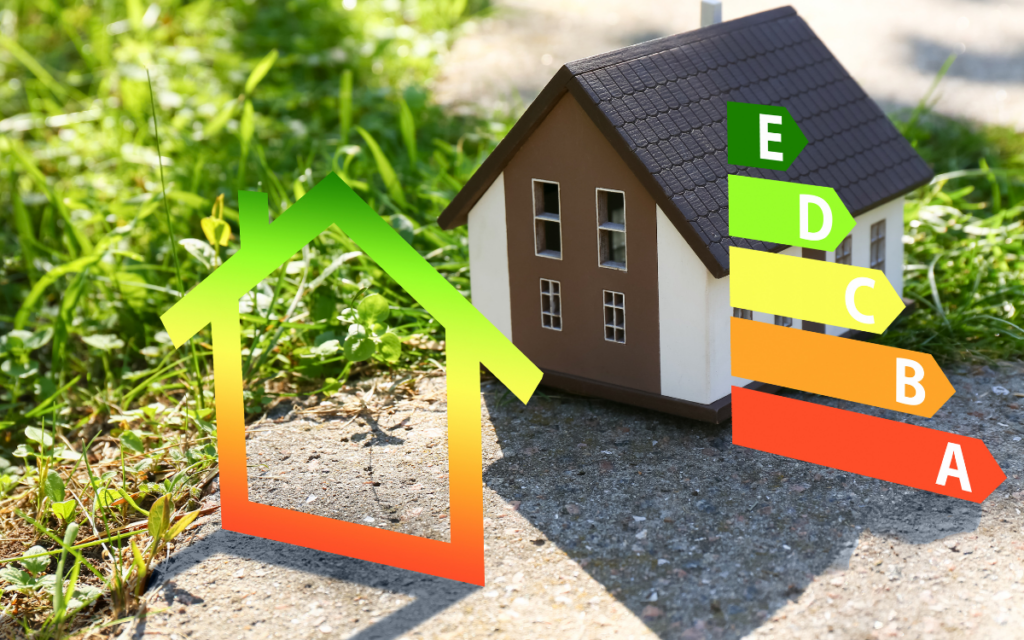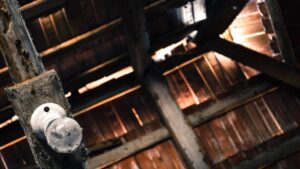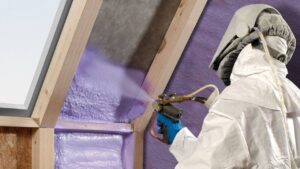What is a Home Energy Assessment?
The majority of Irish homes were built before energy efficiency became a big concern. There are numerous ways in which your property is wasting energy. The heating system may be outdated, the walls and roof can be poorly insulated, and even draughty windows will contribute to energy wastage.
A Home Energy Assessment, commonly referred to as a home energy audit, is a comprehensive evaluation aimed at identifying how a home uses energy and determining strategies to increase its energy efficiency. During the assessment, qualified professionals examine a residence to spot inefficiencies and areas that may benefit from improvements. The assessment can reveal how much energy a home consumes and guide homeowners towards actionable solutions that can enhance comfort and energy performance.
Undertaking this assessment is often the initial step for homeowners interested in reducing their energy bills and improving the overall comfort of their living space. By pinpointing issues like poor insulation or air leaks, occupants can better understand the necessary modifications to optimise their home’s energy use. Moreover, implementing the recommended measures can significantly augment the property’s value and contribute to a more sustainable energy footprint.
With the growing importance of environmental stewardship and cost-saving measures, a Home Energy Assessment positions itself as a pivotal tool. It serves as a roadmap for enhancing a property’s energy profile while ensuring that upgrades adhere to the goal of reaching higher energy efficiency standards, such as attaining a B2 rating or pursuing a net-zero energy target. The insights gained from the assessment empower homeowners to make informed decisions on home energy upgrades, aligning personal comfort needs with green living principles.
Understanding Home Energy Assessments
Home energy assessments are crucial for identifying the energy efficiency of a property and outlining steps to enhance its performance. These assessments inform homeowners of potential upgrades to improve comfort and value.
Benefits of a Home Energy Assessment
A Home Energy Assessment allows homeowners to understand their property’s energy usage and identify areas where energy efficiency can be improved. The benefits include:
- Reduced Energy Bills: By implementing the recommended energy upgrades, energy consumption is reduced, leading to lower utility expenses.
- Increased Comfort: Improvements in house insulation and heating systems contribute to a consistent indoor temperature.
- Enhanced Property Value: A higher energy rating can increase a property’s market value, making it more attractive to potential buyers.
What Is a Building Energy Rating (BER)?
The Building Energy Rating (BER) is an indicator of the energy performance of a building. It ranges from “A1” (most efficient) to “G” (least efficient), similar to the ratings found on household appliances. The BER is:
- Mandatory: Required when selling or renting a property in the UK.
- Informative: Provides a clear metric for energy performance to homeowners as well as potential buyers or tenants.
The Role of BER Assessors
BER Assessors are certified professionals responsible for conducting the BER assessment. Their role includes:
- Evaluation: They perform an on-site inspection to evaluate key elements that affect energy performance.
- Certification: After the assessment, BER Assessors issue the BER certificate and an advisory report, which outlines recommendations for improving the property’s energy rating.
Note: Homeowners need to ensure that their BER Assessor is fully qualified and registered with the appropriate regulatory body to conduct such assessments legitimately.
Preparing for a Home Energy Assessment
A thorough Home Energy Assessment not only examines a property’s energy usage but also identifies measures to enhance its energy efficiency. Homeowners should take several steps to prepare for the assessment to ensure its accuracy and usefulness.
Steps to Take Before the Assessment
- Access: Ensure the assessor has full access to all parts of the home, including attics, meter cupboards, and spaces around the heating system.
- Documentation: Gather previous utility bills, details of existing insulation, and any records of past energy-efficient upgrades.
- Household Information: Compile a list of typical energy usage patterns, such as the hours during which the home is occupied and any specific heating or cooling needs.
What to Expect During the Assessment
- Inspection: The assessor will examine the condition of the home’s insulation, ventilation, and the heating system, checking for areas where energy could be lost.
- Testing: They may conduct a blower door test to measure the rate of air leakage from the house.
- Consultation: The homeowner can expect practical advice on improving their property’s energy efficiency, which can range from simple behavioural changes to recommending large-scale renovations or upgrades.
By preparing effectively, a homeowner will help the contractor to perform a more accurate and comprehensive energy assessment.
After the Energy Assessment
Following a home energy assessment, homeowners receive several outputs that detail the efficiency of their property and suggest ways to improve it. These documents are integral to understanding where a house stands in terms of energy performance and what steps can be taken to enhance this rating.
Interpreting the Results
The results from a home energy assessment are encapsulated in the Building Energy Rating (BER) certificate. This document reflects how energy-efficient a home is on a scale from A (most efficient) to G (least efficient). A homeowner should closely examine the BER to understand the current performance of their home.
Advisory Report and Recommendations
Alongside the BER certificate, homeowners receive an advisory report. This report comprises tailored recommendations for the property, listing potential energy upgrades that can improve comfort, reduce energy bills, and increase the home’s energy efficiency. Home energy upgrades may include:
- Installing or improving insulation in walls, roofs, or floors
- Heating controls to allow for better management of energy consumption
- Considering a renewable energy system such as solar panels to generate clean energy
Improving Your BER Rating
Improving a home’s BER rating involves implementing the suggested upgrades. The prioritisation of these upgrades can significantly affect a home’s energy consumption patterns. Homeowners should consider:
- Ventilation systems, to maintain healthy air quality while improving energy efficiency
- Upgrading to a more efficient heating system to reduce energy waste
- Implementation of each recommended measure will contribute to a higher BER rating and thus a more energy-efficient home.
Do it Yourself Home Energy Assessment
It is possible to carry out your home energy assessment. There are several steps and factors to include if wish to do so:
STEP 1: Check all heating and cooling systems:
Make sure you inspect all appliances for any faults, examine all windows and doors for air leaks and gaps, monitor your hot water usage, and keep track of how often you use your heating system.
STEP 2: Inspect Insulation and sealing:
If you already have insulation then you need to evaluate its current condition. If there is no existing insulation then make notes of where insulation can be included in your home; walls, floor, roof, etc.
STEP 3: Monitor electricity use:
Evaluate your use of lights and make note of when lights are turned off. Assess the rating of your light bulbs. You need to monitor what appliances are left on standby and which ones are being plugged out of the sockets regularly. You should also check for any outdated electrical appliances.
Usher Insulation’s Professional Energy Audits
Hiring a professional energy consultant like Usher Insulation will give you a more accurate energy assessment with detailed reporting and figures. Our energy audits are a comprehensive examination of your home to identify energy savings, and cost savings as well as offering expert advice moving forward. The energy auditor will conduct a room-by-room examination, making note of all findings, as well as a thorough examination of past energy bills. Based on our assessment we can then come up with a tailored plan to tackle your energy wastage, make changes to improve efficiency, and save you money on your bills.
Energy Assessments Dublin
As one of the most established home insulation companies in Dublin, Usher Insulations are expert in energy audits. We perform BER Assessments to highlight exactly where your home is wasting energy and create a plan to rectify the issues. We have conducted hundreds of building energy assessment tests and have helped clients identify and correct areas where they were wasting energy and wasting money. We can also advise you on how to carry out your home energy audit. For further advice and information speak to a member of our team on 018201921.


